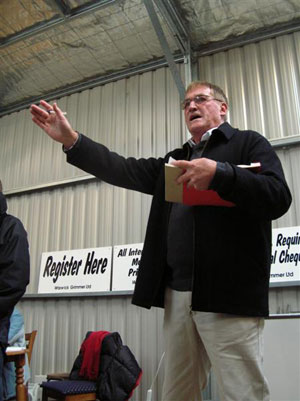Licensed Auctioneer
Tasks & duties

Licensed auctioneers may do some or all of the following:
-
inspect goods for auction and estimate their value
-
arrange for handlers to transport the goods to the auction room
-
keep a database of goods for auction
-
create and distribute a catalogue of goods to be auctioned
-
arrange the place, date and advertising for an auction
-
lot goods (group items together for sale) and plan the selling order
-
display goods for purchasers to view before an auction
-
provide information on goods to buyers
-
collate postal bids
-
call for bids and look for bidding signals
-
sell goods to the highest bidder, subject to a reserve price if applicable
-
help arrange finance for payment of goods or insurance
-
keep a record of sales
-
sell goods or property under court orders, for banks and other creditors to pay off debts
Specialisations
Licensed auctioneers own an individual licence issued by the court that authorises them to conduct auctions. Other autioneers, or named sellers, do the same work but are authorised by being named on their employer's licence, rather than having an individual licence.
Both types of auctioneer may specialise in the following areas:
Arts and Collectables Auctioneer
Arts and collectables auctioneers auction antique goods, fine arts and rare collectable items. Within this area of auctioneering it is possible to specialise further in areas such as silver, Persian rugs, furniture, jewellery, fine art, paintings, tribal art and artefacts or dolls.
Fruit and Produce Auctioneer
Fruit and produce auctioneers auction edible goods.
Auto Auctioneer
Auto auctioneers auction vehicles and vehicle parts.
General Auctioneer
General auctioneers auction items such as videos, whiteware or general furniture.
Real Estate Auctioneer
Real estate auctioneers auction houses and buildings.
Stock and Station Auctioneer
Stock and station auctioneers auction livestock.
Skills & knowledge

Licensed auctioneers need to have:
-
knowledge of auctioneering
-
knowledge of the details of the products they are selling
-
knowledge of product trends and their market values
-
understanding of the Auctioneers' Act and other relevant legislation
-
excellent public speaking and communication skills, and the ability to keep the auction flowing
-
sales skills
-
good numerical skills
-
writing skills for producing catalogues
-
organisational and decision-making skills
Entry Requirements
To become a licensed auctioneer you need to be individually licensed by the courts. This involves meeting requirements under the Auctioneers' Act 1928, which are based on an assessment of whether you are a fit and proper person. The court also takes into account an applicant's financial position and character. Licences are renewed every year, and the Police are responsible for vetting applicants. Many auctioning houses also conduct their own security checks before employing someone.
Other auctioneers, or named sellers, are authorised to conduct auctions by being named on their employer's licence. However, they still need to meet the requirements of the Auctioneers' Act 1928. For more information on licensing contact the Auctioneers Association.
Tertiary education
There are no formal auctioneering courses available in New Zealand, so those who want to become auctioneers are increasingly attending training courses in Australia. These are organised through the Society of Auctioneers and Appraisers (SA) Incorporated and the Auctioneers and Valuers Association of Australia (Inc).
Training on the job
Skills are gained on the job, and licensed auctioneers improve their skills and knowledge by reading relevant articles and books, visiting museums and galleries, following other auctions and researching on the Internet.
Some auction houses also run in-house training courses.
Useful experience
Useful experience includes work as an auctioneer understudy or bidding assistant, clerk or auction room attendant. Experience working in a sales environment or in specific industries where auctions are held is also useful. For example, working with livestock for stock and station auctioneers.
As opportunities are not often advertised in conventional ways, contacting auction houses directly and offering to do work experience is also a useful way to make contacts and gain experience.
For more information, please refer to Career Services.
Document Actions
